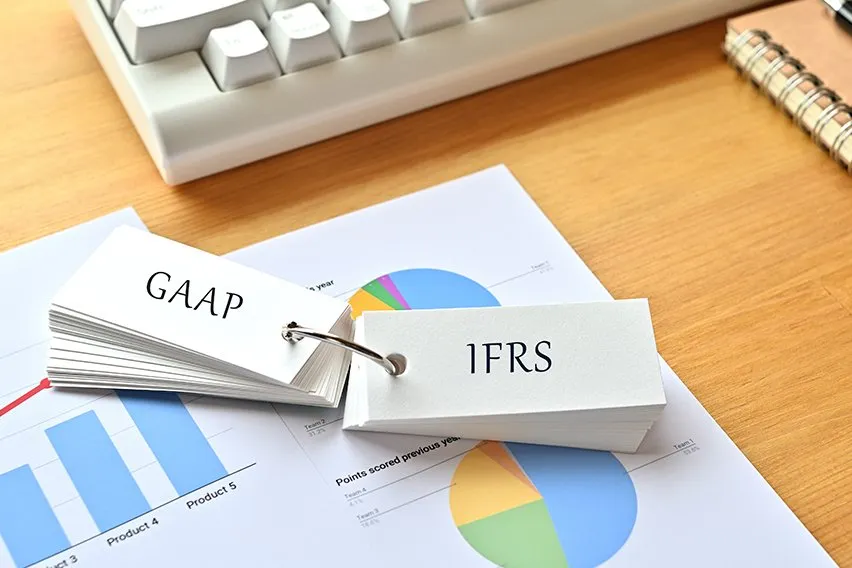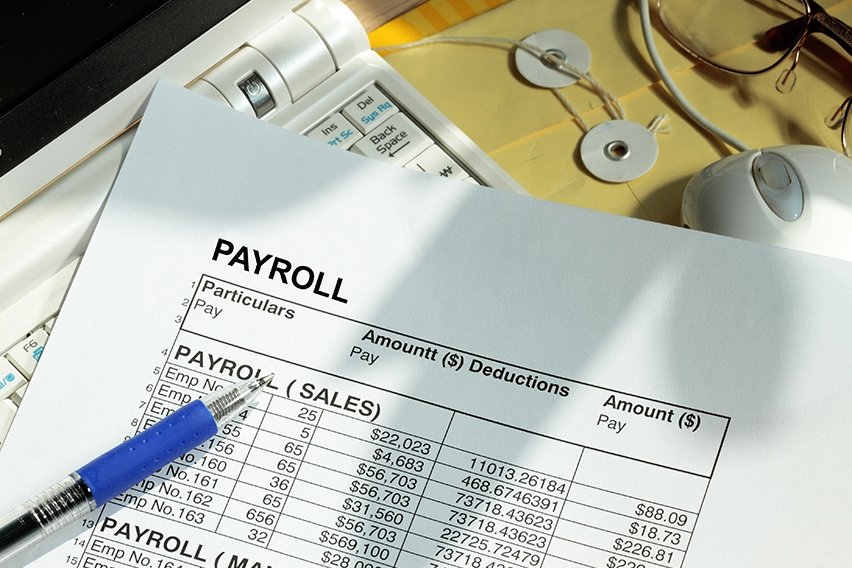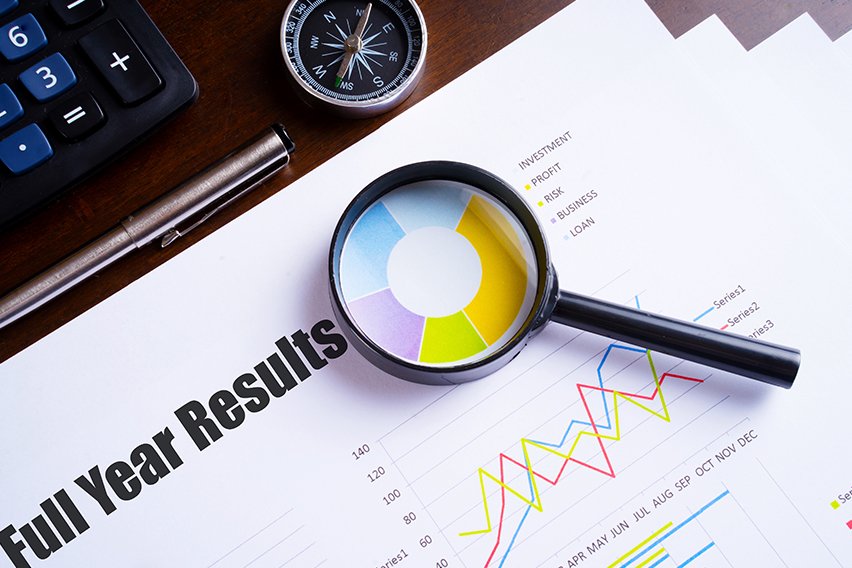GAAP Vs IFRS: What’s the Difference?

Are you a business owner or executive who needs to understand the financial impact of IFRS and GAAP?
You’ve probably heard about these two different accounting standards, but don’t know what they are. This article will provide you with all the information you need to make informed decisions about your company’s finances.
Understanding how IFRS and GAAP affect your company is important for any decision-maker. It could be an acquisition or merger, new product launch, or other major initiative. Our insights will give you a clear picture on where your organization stands financially.
This article will discuss what each method is, which one is better, which one you should use and more.
Here’s What We’ll Cover:
What’s the Difference between IFRS and GAAP?
GAAP Vs IFRS: Which Method Should You Use?
GAAP and IFRS Compared
What Is GAAP?
Generally Accepted Accounting Principles, or GAAP, is a set of rules and procedures. These rules govern financial reporting. GAAP is used by accountants to prepare financial statements. These include items like quarterly reports and annual filings.
The Financial Accounting Standards Board (FASB) is responsible for creating GAAP. It is enforced by the Securities and Exchange Commission (SEC).
GAAP focuses on three main areas: consistency of reporting, fair value measurements, and going concern. Consistency of reporting is the idea that no one method should be used over another.

For example, if you paid $100 for an item at a store, but received $30 cash back, your net cost would be $70.
Now, if you later sold this item to someone else for $100, your net income would be $30.
Under GAAP, both the purchase and sale should use the same accounting method.
Fair value measurements is an idea that all assets and liabilities should be recorded at their current market values. This is opposed to historic costs. Going concern is a rule requiring companies to assume they will be able to continue doing business for at least another year.
The 4 Principles of GAAP
The 4 principles of GAAP are the way accountants determine which transactions to record and how they should be recorded. The four GAAP principles are costs, revenues, matching and disclosures. Let’s break down each one to better understand how it works.
- Costs
Costs are what you have to pay in order to get something. For example, when you buy a cup of coffee for $2.00, the cost would be the price of the cup of coffee.
- Revenues
Revenues are the money you earn from your product or service. For example, if you sold a cup of coffee for $2.00, that would be $2.00 in revenue.
- Matching
The principle of matching is when you record all related revenue and costs together.
For example, if you are a business owner who has to pay for office supplies, it would be recorded with your other purchases.
- Disclosures
Disclosures are the information you have to explain about specific transactions in your financial statements.
What Is IFRS?
International Financial Reporting Standards (IFRS) are the rules and regulations followed by accountants in countries around the world (outside of North America).
It’s a highly detailed set of rules that impact every part of financial reporting. It includes areas like reporting standards to the reporting process.
Since its original introduction in 1988, the International Accounting Standards Board has published new versions of this standard. The IASB is an independent organization responsible for creating these rules. They are enforced by regulators like the European Commission and Federal Trade Commission.
What’s the Difference between IFRS and GAAP?
There are a few key differences between IFRS and GAAP.
The first is that IFRS has more stringent rules against using estimates.
For example, under GAAP you can use an estimation method to determine how much warranty expense your company should offset from sales revenue. Under IFRS, these two numbers need to be treated as completely separate.
Another difference is that IFRS uses a transparency model that requires more disclosures than GAAP. For instance, under IFRS companies must disclose the methods and assumptions used to prepare their financial statements. This extra information helps users better understand the extent of their company’s influence on the final numbers.
Which Method Is Better?
Though both sets of standards measure business activity in a similar way, there are some drawbacks to each.
If you’re currently under GAAP and want to switch over to IFRS, you need to determine if the additional transparency is worth the extra accounting effort. These rules can be applied in different ways depending on how your company works, so it’s important to ensure that all your numbers conform to the right standard.
On the other hand, some companies may benefit from using GAAP. It’s more lenient and requires less accounting. If you prepare your own financial statements and know how to use a spreadsheet program like Microsoft Excel, GAAP might work better for you since IFRS is more complex.
You should also consider how the SEC and shareholders will review your statements. If you want to go public or acquire a company, you might need to switch from GAAP to IFRS.
Both methods have their own pros and cons. Either way, it’s important that you stay consistent throughout your financial reporting process.

GAAP Vs IFRS: Which Method Should You Use?
GAAP is best for companies that prepare their own financial statements and want to use a more lenient system with few disclosures. If you use GAAP, you need to understand the rules and be able to apply them correctly. GAAP is more of a judgment-based system.
If you want to go public or acquire another company, you should use IFRS on your financial statements. It requires more disclosures about the methods and assumptions used throughout the reporting process; this increases transparency for readers. You also need to keep careful records when applying these standards so that you can easily fix any errors that occur. IFRS is a better option for companies that want a higher level of transparency. If you switch over to IFRS, you need to revamp your accounting process. You should also have an experienced set of professionals guide you along the way.
Which method you choose should depend on your company’s structure and size. It can take a significant amount of time, effort and money to switch from one set of standards to another. You need to ensure you understand the benefits and drawbacks of both systems before making any decision. This is especially true for companies that may be required to switch over to IFRS.
If you’re considering using either of these standards, it’s important that you discuss your options with an experienced advisor or accountant. Only then can you determine if the switch is worth the time and effort for your business.
Key Takeaways
In the past, GAAP and IFRS were used interchangeably. However, in recent years regulations have been set to help separate the two sets of standards. The bottom line is that these regulations make financial reporting more consistent around the world for businesses, investors and regulators.
Some companies may want to stick with GAAP while others will benefit from using IFRS. If you’re a larger company looking to be more transparent, IFRS is probably best for you. This is common amongst companies looking to go public or get acquired. IF you’re looking for a more lenient method so you can prepare your own documents, GAAP is the better choice. It’s important that companies understand these rules and choose the right set of standards for their operations.
Hopefully this article helps you better understand these principles. If you want more information like this, check out our resource hub!
RELATED ARTICLES

 A Guide to Double Declining Balance Depreciation Method
A Guide to Double Declining Balance Depreciation Method What Is Corporate Accounting? Everything You Need to Know
What Is Corporate Accounting? Everything You Need to Know What Are Payroll Liabilities? Definition, Types & How to Track
What Are Payroll Liabilities? Definition, Types & How to Track Fiscal Year-End Accounting: Checklist for Business Owner’s
Fiscal Year-End Accounting: Checklist for Business Owner’s How to Write Off Bad Debt? Overview & Example
How to Write Off Bad Debt? Overview & Example Accounting Transactions: Definition, Types & Examples
Accounting Transactions: Definition, Types & Examples